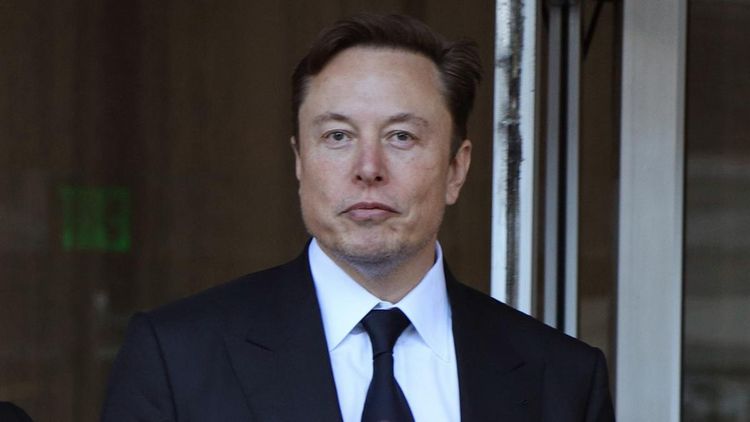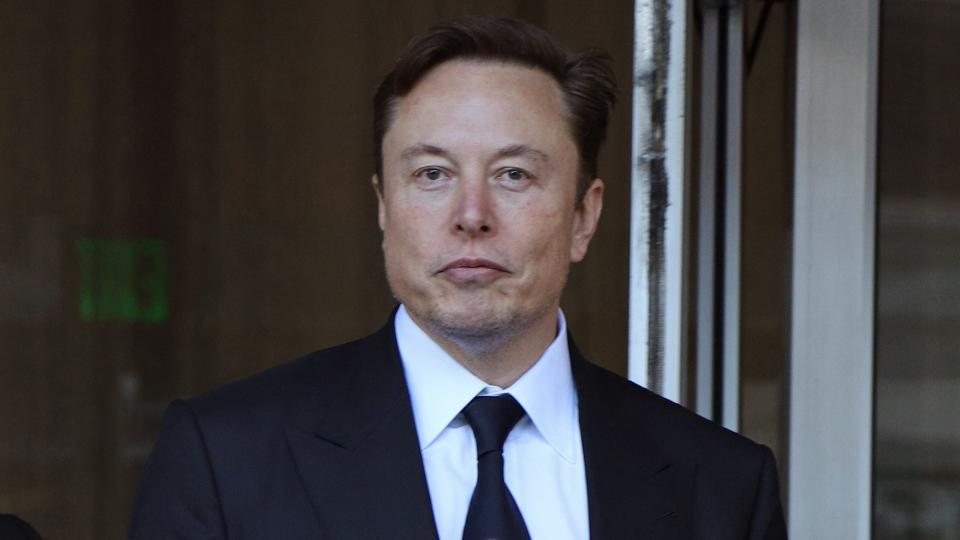How Rich Has Elon Musk Been During Every Decade of His Life?

The blog article states that the image used in it was provided by George Nikitin from the stock image agency EPA-EFE.

As per Forbes, Elon Musk currently holds the position of the wealthiest individual on the planet, with an estimated wealth of approximately $232 billion. However, Musk's journey to becoming a multi-billionaire was not an overnight one. It took him several years of hard work to amass such a colossal fortune by initiating fresh business ventures and putting his money into already-established ones.
As someone who has achieved millionaire status through their own efforts, I want to share with you 5 stocks that I simply refuse to sell. In addition to this, I'll also be providing you with some advice on how to start investing in real estate with $5,000, courtesy of Grant Cardone.
We will examine the immense wealth of Musk during various decades, beginning from his early years in the 1970s, all the way to the present day.
Advertisement: If you have a debt of $10,000 or higher with the IRS, you can set up an appointment for a consultation without charge. During the consultation, you can find out if you are eligible for tax relief.
In 1971, Pretoria, South Africa was the birthplace of Elon Musk. He had a comfortable childhood because his family was financially well-off. His father, Errol Musk, was an engineer and real estate developer, and his mother, Maye Musk, was a successful model and dietitian.
This put him in a good position for upcoming achievements. He was advantaged by his family's considerable riches, opportunities, and assets.
During the 1980s, the Musk family's wealth increased significantly. Errol Musk acquired an emerald mine in Zambia that brought in a substantial profit. Experts estimate that the family's total wealth exceeded $100 million during the decade.
Elon Musk obtained financial stability from the enormous gains of the mine before he went from South Africa to Canada and then to the United States to pursue his education further. The substantial riches of his family also allowed him the liberty to take bold steps as a businessperson. Nevertheless, Musk stated that his family's financial resources did not play a significant role in his achievements.
In the 1990s, Musk started venturing into entrepreneurship. He left Stanford University and together with his brother, Kimbal, founded Zip2, a software company that provided city guides.
Compaq bought Zip2 for a whopping $305 million back in 1999, which meant that Musk received a generous share of the profits totaling $22 million.
During the 2000s, Musk's fortune experienced tremendous expansion.
Back in 1999, Musk co-started X.com, which was an internet bank. After that, X.com and one of its competitors, Confinity, combined in 2000, and a year later, the newly-formed entity was given a fresh name as PayPal. PayPal was ultimately procured by eBay for a remarkable $1.5 billion in 2002. Musk was the largest owner of stocks, which allowed him to depart with a notable amount of $165 million following the acquisition.
In 2002, Musk created SpaceX with $100 million from his own funds.
At the same time, he also invested in Tesla, a company established by Martin Eberhard and Marc Tarpenning. Gradually, Musk got more involved in the organization and eventually took over as its CEO in 2008.
As the 2000s came to a close, Musk had amassed a fortune of approximately $1 billion, primarily thanks to the successful sale of PayPal and the promising beginnings of SpaceX and Tesla.
Musk earned a huge amount of money during the 2010s by leading his companies, particularly Tesla, to incredible heights. When Tesla first started, they had a tough time making money and even lost some in the beginning. In 2010, Tesla entered the NASDAQ market at a value of $17 per share. In 2019, its value had increased to around $27 per share. Customers' increasing interest in electric cars and Tesla's groundbreaking production and promotional practices contributed greatly to Tesla's achievements.
During this period, Musk broadened the scope of SpaceX's activities by obtaining several highly profitable contracts from NASA.
Throughout the majority of the 2010s, Musk possessed a net worth that remained between $10 and $20 billion. However, after Tesla successfully sold more vehicles and began to seize a larger portion of the market, Musk's wealth escalated considerably. In 2019, his net worth had reached approximately $22 billion.
Musk has made a lot of money in the 2020s. This is because the company he owns, Tesla, has been doing really well. In just one year, 2020, he made $142 billion more. Tesla's value went up a lot in late 2021, to over $400 per share. This made Musk the richest person in the world. At the highest point in November 2021, he had $320 billion. But in December 2022, the value of Tesla's shares went down a little, so now he has slightly less money.
According to recent estimates, Musk's total wealth is valued at $232 billion as of 2024.
Dave Ramsey is particularly fearful of one particular kind of debt. As a financial guru, Ramsey encourages individuals to become debt-free. However, he is particularly concerned about debt that is incurred through the use of credit cards. This type of debt can easily spiral out of control and lead to damaging consequences for those who are not careful. Ramsey warns individuals against this type of debt and encourages people to find ways to eliminate their credit card debt as soon as possible. By doing so, individuals can take control of their finances and work towards a debt-free lifestyle.
Here are 5 bills that you currently pay but don't really need to in the coming year: 1. Cable TV: With streaming platforms becoming more popular and affordable, you can save money by cutting off cable TV bills. 2. Gym Membership: You can create your own home gym at a lower cost than what you spend on a gym membership. Consider buying second-hand equipment to save even more. 3. Landline Phone: With everyone having a mobile phone, paying for a landline phone is an added expense that you don't need anymore. 4. Magazine/Subscriptions: While it's nice to have magazines delivered to your doorstep, it's also expensive. Most of the content can now be found online for free, and you can choose to only pay for what you need. 5. Bank fees: Look for banks that offer no-fee accounts. Avoid overdrafts and other unnecessary charges by keeping track of your account balance. 5 Bills That You Shouldn't Pay For Anymore In 2024 There are some expenses that you currently pay for but they are not necessary in the upcoming year. Here are five bills that you must reconsider: 1. Cable Television: As the streaming platforms are becoming cheaper and popular, you can easily eliminate the cable TV bills and save your precious money. 2. Gym Membership: You can establish a healthier environment at your home that can replace the facility of a gym membership. You can also think about buying used equipment to save more money. 3. Landline Telephone: It is a useless expenditure as everyone already owns a mobile phone. 4. Subscriptions to Magazines: It is costly to have magazines delivered to your doorstep, but most of the content is present online that too for free. You only have to invest in that content that is significant to you. 5. Bank Fees: Choose the banks that do not charge extra fees from their clients. Keeping an eye on your balance can also save you from overdrafts and other needless charges on your account.
Verify Your Money Management: You Could Possibly Be Committing One of These Incredibly Familiar Errors
Here are six indications that you possess a higher level of financial acumen than the typical American: 1. You Save Money Regularly: If you consistently set aside cash for anticipated future expenses, such as retirement or emergencies, you are taking a vital step toward financial responsibility. 2. You Keep Track of Your Expenses: By recording your spending, you can gain a better understanding of your financial situation and make informed decisions about where to cut back or invest more. 3. You Understand Debt: Rather than taking on excessive debt, financially savvy individuals only take on what they can afford to pay back promptly and without incurring substantial interest fees. 4. You Have a Budget: By creating a spending plan and sticking to it, you can avoid overspending and make progress toward your financial goals. 5. You Invest Wisely: Wise investment decisions can help you achieve financial success over the long term. 6. You Seek Financial Education: Continual learning and seeking advice from experts are critical components of developing financial acumen.
The following blog post was first published on GOBankingRates.com. It explores Elon Musk's wealth across different decades of his life.









































